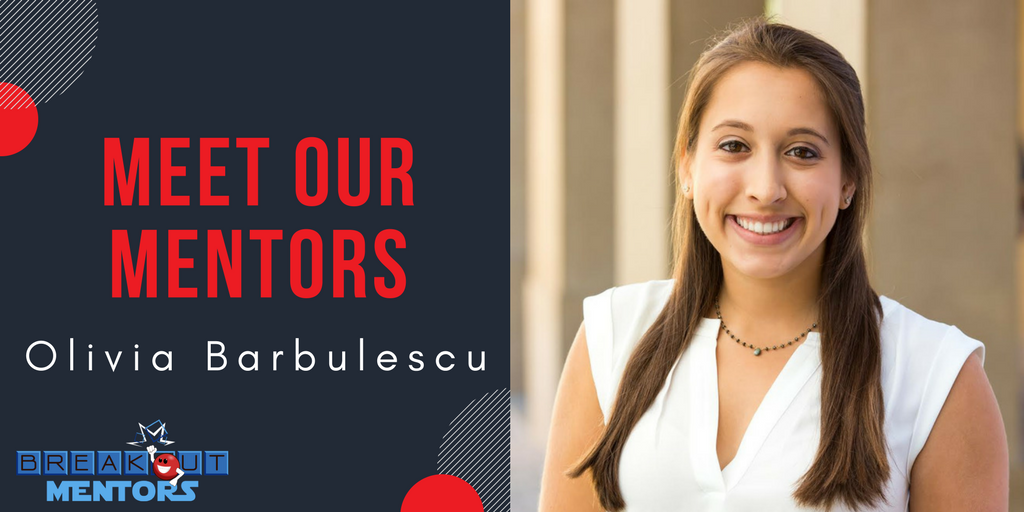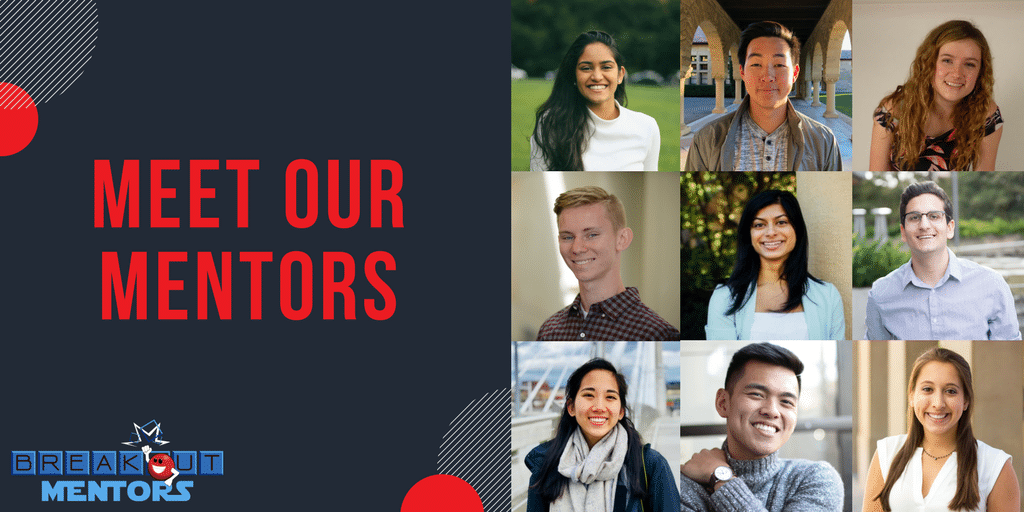Breakout Mentors provides the personalized approach for kids learning to code. PERSON-alized, because we focus on the individual needs of each student and are led by an actual mentor.
The person leading the student is the most important factor for a kid learning to code over months and years. Not a “perfect” curriculum with an expensive robot. Not a nice looking building next to Jamba Juice.
Every student is different and should not be subject to a one-size-fits-all approach to learning to code. Breakout Mentors does project-based learning precisely to adjust to each student’s interests and continue to challenge them at the perfect pace.
Anyone can lead a student through a structured fill-in-the-blank worksheet. It requires a lot more talent to lead project-based learning.
Our Talented Mentors
We hire college students with a passion for coding who enjoy working with kids – exclusively from top tier Computer Science schools Stanford, UC Berkeley, and Santa Clara University.
With careful consideration, each student is paired to work one-on-one with a mentor. They meet that same mentor every week and build a strong rapport. We hear the relationship described as a “big brother” or “big sister” (see more parent perspectives).
Rather than speaking generally about the group, let’s get to know a couple mentors.

Ryan has a similar background to many Breakout Mentors students. He grew up in the Bay Area and started coding in middle school with Scratch, just as we recommend for our students. Ryan started as a mentor his freshman year at Stanford, working with students in both Scratch and Java.
When did you start to code?
I began coding in sixth grade, when I took an elective at my middle school to learn the Scratch programming environment. The simplicity and creativity of the Scratch environment had me hooked, and in high school I picked up web development languages HTML and CSS on my own time. Now, at Stanford, I’m beginning to take coding more seriously with introductory courses in Java, C++, and Python.
What do you find rewarding about teaching kids how to code?
My favorite part of the mentoring process is watching students run away with their own ideas, and extend the project beyond its baseline functionality. Helping someone to unlock their creative potential through code, and to become confident in their engineering skills, is an extremely rewarding process.
What advice do you have for kids learning how to code?
My advice would be to always look beyond the minimum requirements for a project. Getting a program to do just what it’s supposed to is great, but how can you go further? Can you add an extra level, an extra hidden feature, or a little more flair to the design? In thinking this way, you make the code your own, and are able to apply your own creative abilities. This process always makes me excited to learn more about coding, improve my skills, and tackle bigger problems.

Olivia joined the beginning of her junior year at Stanford and is a native New Yorker. She is excellent with kids and makes even the most difficult challenges approachable, including the transition from drag-and-drop Scratch coding to typed Java coding!
What do you find rewarding about teaching kids how to code?
I love seeing how excited kids get when they find the bug in their program or figure out a concept. Coding can sometimes be intimidating and it’s easy to feel discouraged. It’s amazing to watch kids move from initial frustration to complete understanding.
What is your favorite game or project you have created with a student?
I loved making the RandomArt graphics program with a student. RandomArt is an animated program where different shapes and sizes appear on the screen. A lot of students really enjoy animation and video games, and it is so exciting to see them be proud of their work and see its practical applications.
What advice do you have for kids learning how to code?
Keep asking questions! You will become a fantastic coder if you make sure that you understand the concepts inside and out. If you have a question, chances are that a bunch of other people have had that question before, and no question is “too dumb” to ask. Sometimes you will struggle and make mistakes, but you will only learn from these experiences and become an even better coder!
